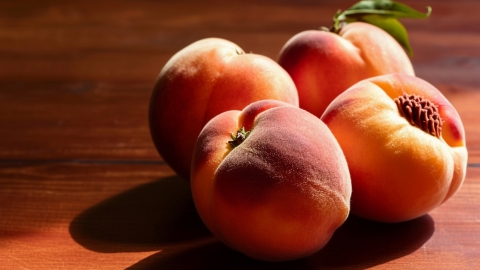Can I eat peaches during the late stages of pregnancy?
Generally, in the late stages of pregnancy, women with normal blood sugar levels and no allergy to peaches can consume peaches in moderation. However, if blood sugar levels are high or there is a peach allergy, it is not recommended to eat peaches. Detailed explanation is as follows:

If blood sugar levels are within the normal range during late pregnancy and there is no history of peach allergy, consuming peaches in moderation can help supplement nutrition. Peaches are rich in vitamins, dietary fiber, and water. Vitamins can promote fetal development, dietary fiber helps relieve common constipation issues during late pregnancy, and water helps replenish bodily fluids and maintain metabolic balance. Choosing fresh, ripe peaches and consuming them raw after washing or as freshly made juice better preserves their nutritional value.
Women in the late stages of pregnancy who have gestational diabetes with poor blood sugar control or are allergic to peaches should avoid eating them. High blood sugar levels can be further elevated by the sugar content in peaches, which may affect the health of both mother and baby. Allergic individuals may experience allergic reactions such as rashes or difficulty breathing after consuming peaches, which poses risks to pregnancy safety.
Before consuming peaches during late pregnancy, one should confirm their blood sugar status and allergy history. Consumption should be moderated, not exceeding two medium-sized peaches per day. After eating, it is important to monitor blood sugar changes. If any adverse symptoms occur, consumption should be stopped immediately and medical attention sought.







